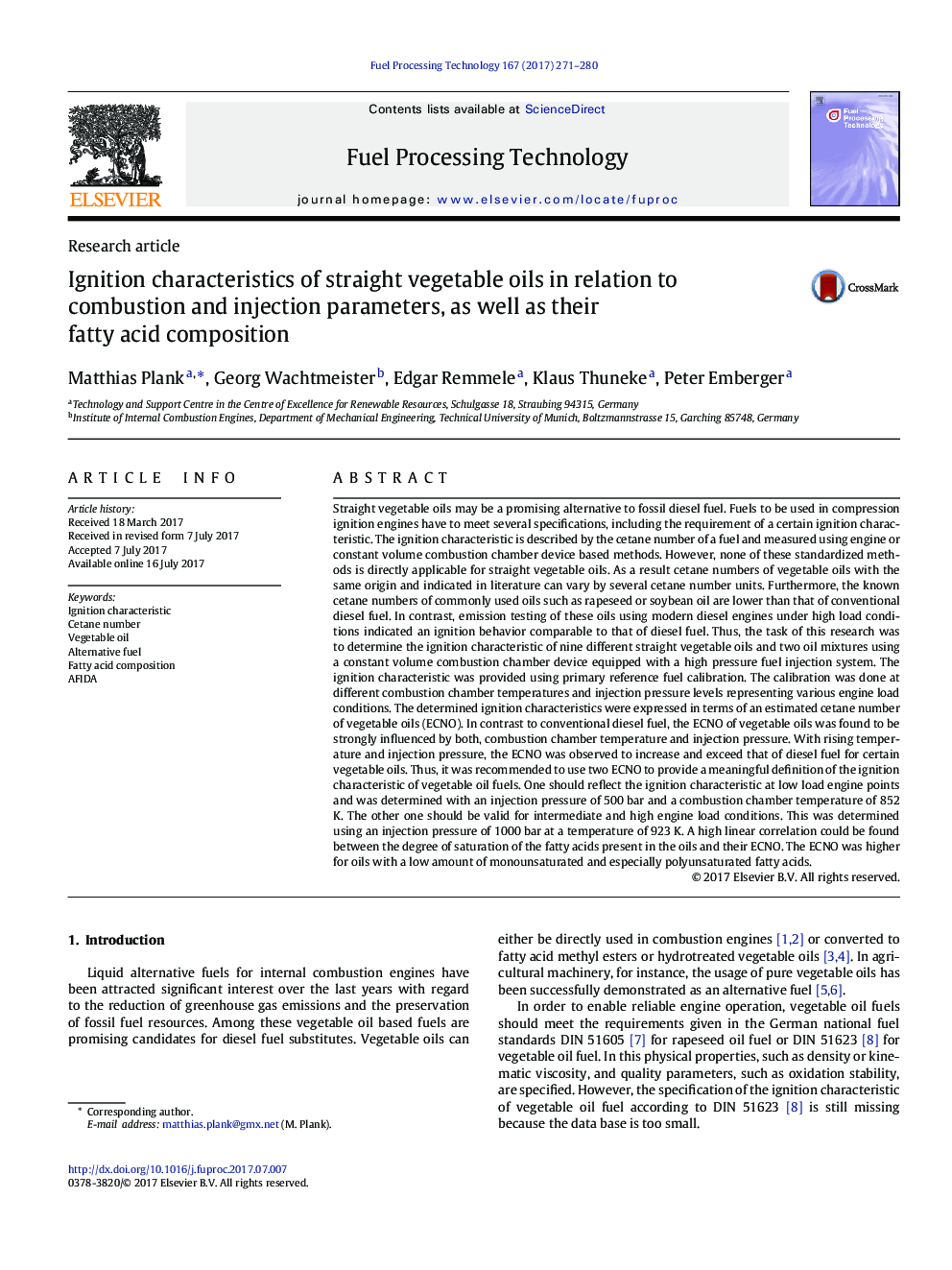| کد مقاله | کد نشریه | سال انتشار | مقاله انگلیسی | نسخه تمام متن |
|---|---|---|---|---|
| 6476271 | 1425379 | 2017 | 10 صفحه PDF | دانلود رایگان |
- Ignition characteristics of eleven different vegetable oils was determined.
- Ignition characteristics were expressed in terms of equivalent cetane number of vegetable oils.
- ECNO was correlated to their fatty acid composition.
- Increasing unsaturation of the oils led to lower ECNO.
- ECNO was strongly influenced by height of injection pressure.
Straight vegetable oils may be a promising alternative to fossil diesel fuel. Fuels to be used in compression ignition engines have to meet several specifications, including the requirement of a certain ignition characteristic. The ignition characteristic is described by the cetane number of a fuel and measured using engine or constant volume combustion chamber device based methods. However, none of these standardized methods is directly applicable for straight vegetable oils. As a result cetane numbers of vegetable oils with the same origin and indicated in literature can vary by several cetane number units. Furthermore, the known cetane numbers of commonly used oils such as rapeseed or soybean oil are lower than that of conventional diesel fuel. In contrast, emission testing of these oils using modern diesel engines under high load conditions indicated an ignition behavior comparable to that of diesel fuel. Thus, the task of this research was to determine the ignition characteristic of nine different straight vegetable oils and two oil mixtures using a constant volume combustion chamber device equipped with a high pressure fuel injection system. The ignition characteristic was provided using primary reference fuel calibration. The calibration was done at different combustion chamber temperatures and injection pressure levels representing various engine load conditions. The determined ignition characteristics were expressed in terms of an estimated cetane number of vegetable oils (ECNO). In contrast to conventional diesel fuel, the ECNO of vegetable oils was found to be strongly influenced by both, combustion chamber temperature and injection pressure. With rising temperature and injection pressure, the ECNO was observed to increase and exceed that of diesel fuel for certain vegetable oils. Thus, it was recommended to use two ECNO to provide a meaningful definition of the ignition characteristic of vegetable oil fuels. One should reflect the ignition characteristic at low load engine points and was determined with an injection pressure of 500Â bar and a combustion chamber temperature of 852Â K. The other one should be valid for intermediate and high engine load conditions. This was determined using an injection pressure of 1000Â bar at a temperature of 923Â K. A high linear correlation could be found between the degree of saturation of the fatty acids present in the oils and their ECNO. The ECNO was higher for oils with a low amount of monounsaturated and especially polyunsaturated fatty acids.
Journal: Fuel Processing Technology - Volume 167, 1 December 2017, Pages 271-280
